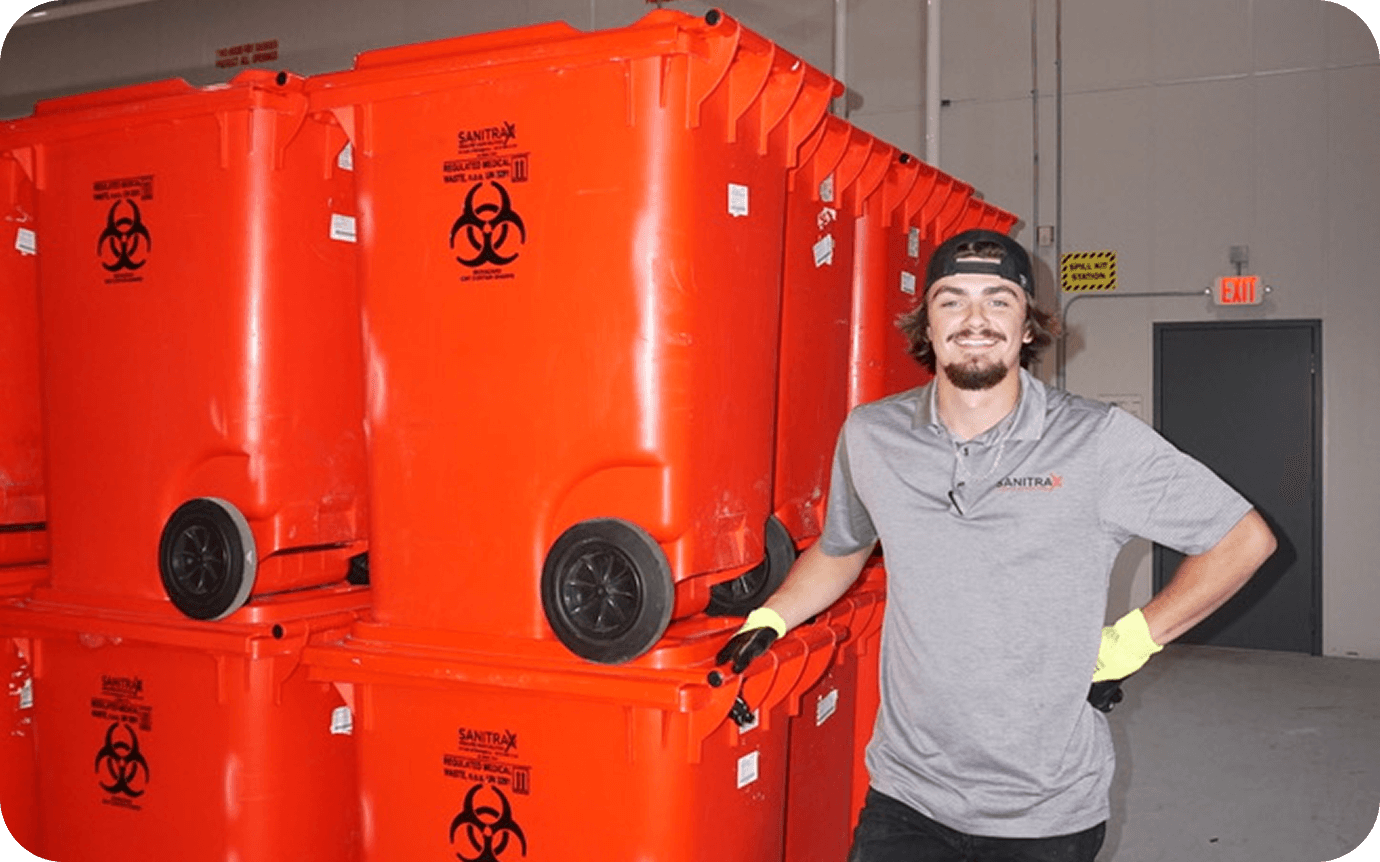The Importance of a Sustainable Waste Management Strategy in Healthcare Facilities

Healthcare facilities generate a wide range of waste daily, including regulated medical waste (RMW), general solid waste, pharmaceutical waste, hazardous waste, universal waste, electronic waste, and various recyclable materials. As healthcare organizations expand, the need for a comprehensive and sustainable waste management strategy becomes increasingly important—not only to meet regulatory requirements but also to contribute positively to environmental and community health.
The Joint Commission’s new Sustainable Healthcare Certification further emphasizes the significance of sustainable practices in healthcare. This certification provides a framework to help healthcare facilities set priorities, establish baselines, and measure greenhouse gas (GHG) reductions. At SaniTrax LLC, we understand that managing healthcare waste responsibly is essential for achieving sustainability goals and supporting broader decarbonization efforts in the healthcare sector.
1. Regulatory Compliance: Ensuring Safety and Preparedness
Strict regulations govern healthcare waste management at the federal, state, and local levels, covering all stages from collection and transportation to treatment and final disposal. Non-compliance can result in severe consequences, including public health risks and environmental hazards. The Joint Commission’s Sustainable Healthcare Certification adds an additional compliance layer, focusing on environmental performance, GHG tracking, and sustainable practices.
SaniTrax LLC ensures compliance by continuously monitoring regulatory changes and adapting our processes to meet evolving requirements. This proactive approach helps healthcare facilities meet certification criteria while ensuring safe, effective, and sustainable waste management.
2. Detailed Tracking: Promoting Transparency and Accountability
Effective waste tracking is critical for sustainable management. It ensures accountability and supports certification requirements by providing clear data on waste streams, emissions, and overall environmental performance. The Joint Commission’s certification emphasizes tracking GHG emissions, including those related to waste disposal.
SaniTrax’s detailed tracking systems monitor each step of the waste management process—from initial collection to final disposal. This comprehensive approach provides healthcare facilities with accurate data to verify that waste is handled safely, in compliance with regulations, and aligned with sustainability goals.
3. Enhancing Recycling and Waste Diversion for Certification
Recycling and waste diversion are key components of sustainable healthcare operations and The Joint Commission’s certification criteria. Materials such as cardboard, plastics, glass, metals, and electronic waste can be effectively recycled when properly segregated. Implementing sustainable waste management practices not only aids in achieving certification but also significantly reduces the facility’s overall environmental impact.
SaniTrax LLC works with healthcare facilities to implement efficient recycling programs, focusing on waste segregation, staff education, and enhanced diversion techniques. By maximizing recycling rates, healthcare facilities can reduce their carbon footprint and align their operations with broader decarbonization goals in the healthcare sector.
4. Waste Minimization and Reusable Solutions: A Path to Cost Savings
Achieving The Joint Commission’s Sustainable Healthcare Certification requires demonstrating waste minimization and sustainable management. Implementing reusable solutions, reducing single-use products, and minimizing waste at the source are vital components of this effort. For example, using reusable sharps containers and adopting sustainable waste disposal options can reduce both waste volumes and operational costs.
SaniTrax LLC collaborates with healthcare facilities to identify opportunities for waste reduction and reusable solutions, supporting their certification journey. By achieving waste minimization, healthcare facilities can also access potential cost savings, which can be redirected to patient care, infrastructure improvements, and other critical areas.
5. Supporting a Circular Economy Through Advanced Waste Treatment
Advanced waste treatment methods are crucial for achieving sustainability and reducing GHG emissions from waste disposal. SaniTrax LLC offers innovative waste treatment technologies like autoclaving and shredding, which reduce waste volume and emissions.
By implementing these sustainable treatment methods, healthcare facilities can meet the certification requirements for reducing waste-related emissions. These efforts contribute to achieving certification and support the broader goals of a circular economy, where waste is repurposed and treated with minimal environmental impact.
The Joint Commission’s Certification: A New Era for Sustainable Healthcare
The Joint Commission’s Sustainable Healthcare Certification offers healthcare facilities a clear framework to enhance their sustainability efforts. It focuses on reducing GHG emissions, improving waste management, and encouraging energy-efficient practices. Achieving certification benefits healthcare organizations by improving patient outcomes, enhancing their reputation, ensuring regulatory compliance, and promoting cost savings through sustainable operations.
SaniTrax LLC is committed to supporting healthcare facilities in pursuing this certification. By integrating sustainable waste management practices, detailed tracking, and compliance solutions, we help facilities reduce emissions, meet certification requirements, and contribute to the healthcare sector’s decarbonization efforts.
The new certification from The Joint Commission underscores the urgency for healthcare facilities to adopt sustainable waste management practices. By partnering with SaniTrax LLC, healthcare organizations can implement effective strategies to achieve certification, reduce environmental impact, and create healthier communities. Sustainable waste management is not just a regulatory obligation—it is a commitment to responsible healthcare delivery and environmental stewardship.
